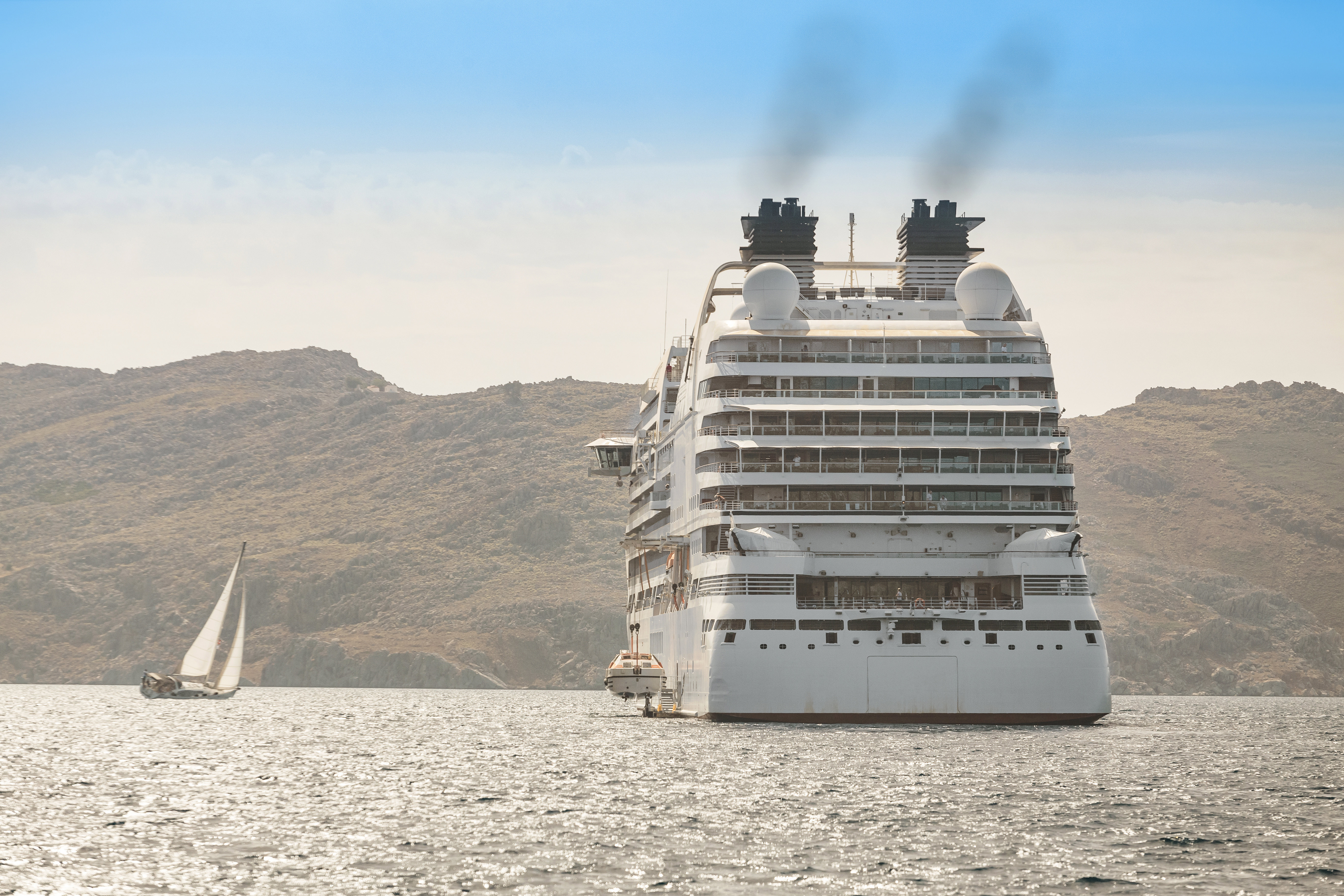
Gary Frith
Holiday Claims Lawyer
If you’ve been injured in a cruise ship accident that wasn’t your fault, you may be able to claim compensation. Our experienced Holiday Claims Solicitors are here to give you clear advice and the support you need to help the process go as smoothly as possible.
Being injured on a cruise can be especially difficult. You might not have access to the medical help you need straight away, and you may be far from home. It’s completely understandable to feel upset, worried, or frustrated. We’re here to help you move forward with confidence.
Cruise operators must take steps to keep passengers safe and prevent accidents. But things can still go wrong, and injuries can range from minor to very serious.
Our team has many years of experience helping people with cruise ship and holiday accident claims. We understand how these cases work and what is needed to build a strong claim for compensation.
We keep things simple, explain your options clearly, and are always upfront with you. There are no hidden costs, and we’ll guide you through the process with clear advice and reliable support.
Get in touch with our Holiday Claims team today for free, no-obligation advice. We may be able to handle your claim on a No Win, No Fee basis - ask us for details.
Fill in the form below to get in touch with one of our dedicated team members, or call our team today on: 0800 260 5010



Cruise ship accidents can happen when you’re embarking or disembarking the ship, or they can happen whilst you’re at sea. Common accidents include:
If you think the accident could have been avoided and happened because of the negligence of the cruise ship operator, you may be entitled to compensation. Our Holiday Claims Solicitors can advise you on this.
Simpson Millar5 stars
After nearly four years - Success!
After nearly four years, we finally had our day in court against an airline that left us stranded and forced us to buy alternative flights just to reach our destination. What should have been my daugh...
customer
Simpson Millar5 stars
Holiday accident claim
Before Simpson Millar were instructed I tried for two years to even get a response from Tui regarding my claim. I was kept informed of progress at every step. They made the whole experience easy and s...
Tina watkins
Simpson Millar5 stars
Simpson Millar Team cared when no one else did
What can i say, Paul Stevens and the Simpson Millar team were absolutely fantastic in dealing with our case. In 2022 Paul and his team took our case on and they have been fighting our cause ever sinc...
Fay Ellington
Simpson Millar5 stars
Professional
Darrel, my contact, explained right at the start of the process that this would be a likely drawn out affair, but reassured me at every point with professionalism and empathy.
S.Newton
Simpson Millar5 stars
Paul Stevens' guidance
Paul Stevens' guidance, insight and knowledge were very helpful in managing my expectations in a case of an accident claim that, to me was straightforward, but I found out, was not at all. I got somet...
Private Client
Simpson Millar5 stars
Flight Insurance Claim
A Mr Ian Bridge was so so helpful, after years of trying to sort my problem out with airlines, insurance's credit cards ombudsman, etc ect,he acted on our behalf, and was successful, in sorting out o...
john gorton
Simpson Millar5 stars
The company fulfilled all our…
The company fulfilled all our requirements.
Brenda
If you have suffered an injury on a cruise ship or while embarking or disembarking, and the operator failed in their duty to keep you safe, you may be entitled to compensation. Our Maritime Accident Solicitors have many years of experience handling cruise ship claims and have successfully secured compensation under the Athens Convention for hundreds of Simpson Millar clients.
We can help determine if you have a valid claim and manage the entire process for you, including communication with the carrier’s legal team. This allows you to focus on your recovery while we handle the legal details.
The Athens Convention, officially known as the Convention relating to the Carriage of Passengers and their Luggage by Sea, is an international treaty that sets out rules for liability when passengers suffer injury, loss, or damage while traveling by sea.
Established in 1974 to replace earlier agreements from 1961 and 1967, the Convention applies to all vessels involved in international sea travel, including cruise ships and ferries. This means it covers journeys that start and end in different countries, as well as cruises that visit international ports even if the trip begins and finishes in the UK.
Under the Convention, vessel owners or operators are responsible for injuries or damage caused by negligence from their staff or agents. It specifically covers incidents occurring during boarding, the voyage itself, and disembarkation.
It may seem daunting to bring a compensation claim against a large cruise ship company. However, you can trust that we have successfully claimed compensation from many of the larger cruise ship operators, including:

If you are injured during a cruise, taking a few important steps can help support your compensation claim. These include:
To make a strong claim under the Athens Convention, you’ll need to show that your accident happened because of negligence or wrongdoing. Having the right evidence can really help support your case and improve your chances of getting compensation. Here are some examples of what can make a difference:
If the Athens Convention applies to your case, you have two years to make a claim from the date you disembarked the cruise ship at the end of your holiday or when you were moved from the cruise ship to be hospitalised.
At Simpson Millar, we strive to make everything as straightforward and stress-free as possible, guiding you through each step with clarity and support.
The first step is to contact our team of Holiday Accident Solicitors. We offer a free initial consultation, during which we'll discuss the details of what happened when you were injured, who you think was at fault, and the potential impact your injury or injuries have had on your life. This assessment helps us determine whether you have a valid claim under the Athens Convention. If we can help you, we may be able to offer you a No Win, No Fee agreement.
With thorough investigation and evidence gathering, we can prove liability (fault) and strengthen your case. Our team will work with you to collect the evidence needed, depending on the nature of your case, such as:
Once all the evidence has been collected, we will submit your claim to the cruise ship operator, asking them to accept responsibility for your injuries. This formal notification outlines the details of your injury, how it occurred, and the impact it has had on your life. We will also set out the amount of compensation being claimed, which covers:
If the operator admits responsibility, we can start negotiating an appropriate compensation settlement. If you have immediate financial or medical needs, we can ask for an interim payment of compensation to ensure you can access the support you need before the claim is fully settled.
If the cruise liner operator denies responsibility or the compensation offer is too low, we may need to take your case to court. If this happens, we will continue negotiating to try to settle your case prior to court proceedings.
Most claims of this nature don't get as far as court. However, if all other options are exhausted and litigation proves inevitable, our Holiday Accident Solicitors have extensive experience in handling complex court cases, giving you peace of mind that your claim is in capable hands.
Once the claim has been settled, either through negotiation or court proceedings, you will receive your compensation. This is designed to cover all of the damages related to your injury, including medical treatment, rehabilitation, lost earnings, and the emotional impact of your injury, and we'll make sure the compensation is paid as quickly as possible.
There is no set time limit. It depends on the seriousness of your injuries and whether the cruise ship company accepts liability for your accident. In most cases, we are able to settle claims within 12-18 months but serious injuries can take longer when we will only know the value after surgery.
The amount of compensation you could claim will depend on how severely you were injured and the impact your injuries have had on your life both now and in the future. You may be entitled to claim for the following:
If we can help you with your holiday accident claim, we may be able to offer a No Win, No Fee agreement. This means you won't pay any money upfront for your legal fees, but you will have to pay additional costs, known as disbursements. These include things such as court or expert report fees. Disbursements can be covered by an insurance product called After the Event Insurance. Your Solicitor will provide more details about this.
You'll sign a Conditional Fee Agreement or a Damages Based Agreement that says if you lose your case, you won't pay our legal costs. If you win your case, the other side will pay for a proportion of our legal fees, but you may have to pay for some of these yourself from your damages. This is usually capped at a percentage agreed in advance.
Our Holiday Accident Solicitors have a national reputation for successfully bringing compensation claims, regardless of how complex the situation that caused the injury or the seriousness of the Claimant's condition. They have been mentioned in the Legal 500 and Chambers & Partners for their work.
Everyone on our team understands the impact a holiday accident can have and is committed to getting clients the compensation and rehabilitation they need. You can trust that we will act firmly but with compassion and sensitivity. We'll also speak to you in plain English and keep you updated as to how your claim is progressing.
By choosing us, you’ll have dedicated support throughout your claim and expert guidance to help you move forward. We are committed to your well-being and work hard to secure the best possible outcome for you.
The cruise liner owner or operator is responsible for your health and safety when you are onboard, as well as during the embarking and disembarking process.
Yes, you may be able to claim under the Athens Convention if your injury was caused by someone else’s negligence.
Yes, the cruise line company has a duty to protect the health and safety of its employees as well as passengers.
Yes, because a cruise liner company cannot contract out of liability for personal injury or death caused by negligence.
Although your travel insurance can pay for immediate medical care and transport back to the UK, it does not generally cover personal injury compensation. However, it may provide some money for legal fees, so it is crucial to check your policy if you decide to make a claim.
If you want to claim under the Athens Convention, the following must be a Member State (i.e. a country that has ratified the Convention):
Popular ports in counties that have ratified the convention include but not limited to the following:
Our Maritime Accident Solicitors will swiftly let you know if you’re accident is covered by the Athens Convention.
Fill in the form below to get in touch with one of our dedicated team members, or call our team today on: 0800 260 5010